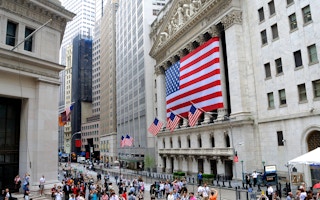Almost nine decades ago, newly elected US President Franklin Roosevelt introduced the New Deal in 1933 in response to the Great Depression.
The New Deal consisted of a number of mutually supportive initiatives, of which the most prominent were: a public works programme financed by budget deficits; a new social contract to improve living standards for all working families, including creation of the US social security system; and financial regulation to protect citizens’ assets and channel financial resources into productive investments.
The New Deal was effectively a fiscal stimulus for recovery, employment, development and environment goals. The Citizens Conservation Corps (CCC) created two million jobs in environmental projects for young Americans aged 18-25 years when the US population was 125 million.
The best known public works project was the Tennessee Valley Authority (TVA), an integrated regional development programme for an underdeveloped region. It built infrastructure to generate hydroelectric energy to sustain industrial and agricultural growth in the US Southeast.
Thus, the New Deal helped ensure US economic recovery, but also successfully addressed unsustainable practices that had caused widespread ecological, social and economic crises in environmentally fragile regions, and helped usher in a new era of economic growth and expanding prosperity, especially in poorer regions.
Sustainable development crises
Today, the world is in protracted economic slowdown. This crisis needs a similarly bold response, as the United Nations urged following the 2008-2009 financial crisis. But its New Deal was to be more global and sustainable. Public works programmes should move countries to more sustainable development pathways to achieve the United Nations 2030 Agenda for the Sustainable Development Goals (SDGs).
First, it has to involve international solidarity, following decades of globalisation, and inequalities among and within countries. Second, it has to be sustainable — economically, socially and ecologically. We face profound environmental crises, with global warming the greatest new threat with unprecedented ramifications.
While much attention has recently focused on climate change, sustainability is also threatened by air and water pollution, natural resource degradation, loss of forests and biodiversity, as well as socio-political instability due to growing inequalities, repression and resistance.
“
Public works programmes should move countries to more sustainable development pathways to achieve the United Nations 2030 Agenda for the Sustainable Development Goals.
A new New Deal
A New Deal for our times should have key elements similar to Roosevelt’s, namely public works programmes and measures to encourage productive investments for output and job recovery, social protection and prudent financial regulation.
Most developing countries are vulnerable to the global financial system. While varied, they are generally less resilient and more susceptible to market volatility, often forced to pursue pro-cyclical macroeconomic policies, exacerbating economic instability and undermining long-term growth.
This New Deal should support counter-cyclical responses in three main ways. First, national stimulus packages in both developed and developing countries to revive and ‘green’ national economies. Second, international policy coordination to ensure that developed countries’ stimulus packages not only create good jobs in the North, but also have strong developmental impacts in the South.
Third, greater financial support for developing countries, as long promised, especially for development and climate change. The North should also enable the South to more effectively mobilise domestic resources, especially through taxation, and stemming illicit outflows of funds.
Setbacks
In light of the slowing world economy, and dim prospects for imminent recovery, resources are needed to strengthen social protection to contain poverty and hunger. Hundreds of millions in developing countries are at risk due to lower incomes, declining export earnings and other challenges.
A strong fiscal response should make long-term investments to accelerate ecologically sustainable and socially inclusive growth. Front-loading massive, multilaterally cross-subsidised public investments in developing countries in renewable energy and sustainable smallholder food agriculture should induce complementary private investments as spontaneous market forces alone will not generate the investments needed.
The Global Green New Deal (GGND) should include mutually beneficial collaborative initiatives between governments of rich and poor countries. Reforms of the international financial and trading systems should support sustainable development for all.
There was a glimmer of hope for such a bold coordinated multilateral initiative at the 2009 London Summit of G20, but cooperation and progress have been disappointing since, e.g., little meaningful progress on its Global Jobs Pact. With the mid-2010 G20 Toronto Summit U-turn, fiscal austerity became the new normal.
Meanwhile, creeping protectionism all around set recovery back further. Growing precariousness and declining living standards, blamed on imports and immigrants, have fuelled the ethno-populist backlash against Others, with multilateralism as collateral damage.
Global Green New Deal urgent
The urgency of an ambitious GGND has risen as most countries drift further off track in achieving Agenda 2030. After almost a decade of stagnation, countries must prioritize recovery, but not at the expense of others. Stimulus packages must lay the foundation for sustainable development.
Policy coordination among major economies should minimise adverse spill-over effects, especially on developing countries, which have become more vulnerable than ever, after decades of economic liberalization and globalization. Socially useful public works could contribute to climate adaptation and mitigation, and improve public goods provision.
To be sure, many other complementary interventions are needed. But such investments and government spending require significantly improved public finances. While revenue generation requires greater national incomes, tax collection can be greatly enhanced through fairer international tax cooperation.
Clearly, the agenda for a new New Deal requires not only bold new national developmental initiatives, but also far better and more equitable multilateral cooperation, through improvement of the inclusive multilateral United Nations system.
Jomo Kwame Sundaram is assistant director-general at the Food and Agriculture Organisation and Anis Chowdhury is an adjunct professor at Western Sydney University & University of New South Wales. This article was originally published on Inter Press Service.












